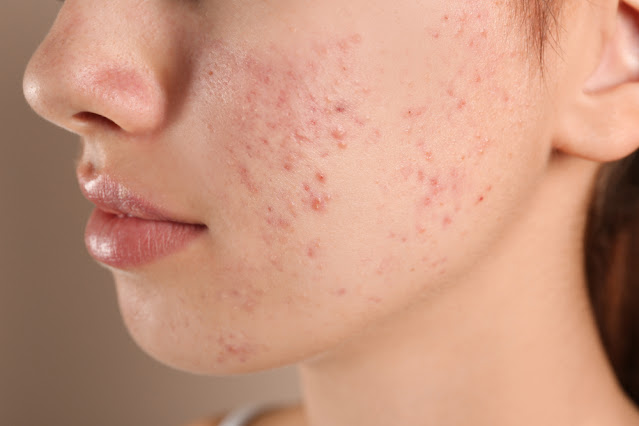Why do ACNE form?
Acne is a usual skin condition that affects any skin type; however, in some cases, acne treatment is necessary. Acne appears typically on the face, neck, back, or shoulders. Although many myths about its causes exist, science explains how zits are formed.
Pores cover the skin on hair follicles connecting to your sebaceous glands. The sebaceous gland's primary function is to lubricate the skin by secreting sebum. This oily substance keeps the skin from drying.
Pustules and papules
The overproduction of sebum causes acne to form. When the oil mixes with dead skin cells and bacteria, it creates a plug, which clogs the pores. Bacteria buildup can lead to infection, causing the surrounding areas of the clogged pore to swell.
Sometimes a white top becomes visible due to pus creating a pimple. So there is no wonder that many ingredients in acne treatment products target zit-causing bacteria.
Whiteheads
A type of acne that is not inflamed is called a whitehead. It does not turn red but appears to have a white tip.
Blackheads
Blackheads are also not inflamed but are open bumps filled with dead skin cells and sebum. It appears as black spots due to the reflection of light on the clogged pore.
Hormonal Changes
Acne breakouts usually happen during the teenage years. However, adult acne is not unusual.
During puberty, there is an increase in the levels of testosterone. This hormone is responsible for stimulating the growth and development of the body.
The sebaceous glands react to the rise of testosterone by over-producing oils for your skin, causing it to flare up.
In women, fluctuations in hormone levels during their periods and pregnancy also lead to the formation of acne. In addition, polycystic ovary syndrome is also a factor in skin breakouts.
Heredity
Genetic factors also influence your likelihood of developing acne at some point in your life. For example, if one or both of your parents had acne, it increases your risk of getting it. Hence they say that acne runs in the family.
In many cases, acne is unavoidable and can be overwhelming,
you should still maintain a healthy diet and good skin care regimen. Consulting
a dermatologist is also beneficial in determining the best acne treatment for
you.



Comments
Post a Comment